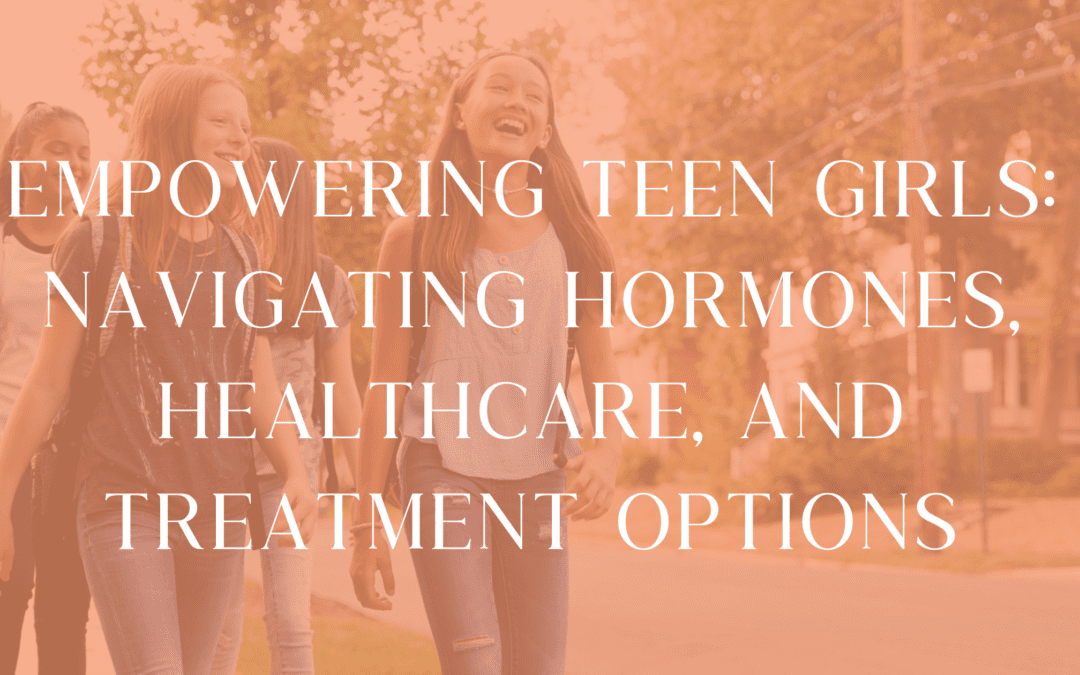download your free supplement list
Adolescence is a transformative period filled with hormonal changes for teenage girls. Unfortunately, many young girls face challenges in accessing proper healthcare and comprehensive treatment options. In this blog post, we will explore the importance of having hormone levels checked and treated while emphasizing the need to consider alternatives to birth control. By empowering young girls to advocate for their health and explore treatment options, we can ensure they receive the care they need but, most importantly, feels right for them.
The significance of hormone testing and treatment:
Hormone imbalances can significantly impact the physical and emotional well-being of teenage girls. Irregular periods, intense mood swings, acne, and weight fluctuations are some common symptoms that hormonal issues can cause. While many girls are dismissed and told this is normal, it is not. It may be common, but it is not normal. Young girls need to have their hormone levels checked by healthcare professionals specializing in this, and if they have been told everything is normal but continue to struggle, please seek another opinion. This allows for accurate diagnosis and helps determine the most appropriate treatment approach.
Understanding options beyond birth control:
While birth control pills are commonly prescribed to manage hormonal imbalances and alleviate symptoms, it is crucial to recognize that they are not the only option. Every young girl’s healthcare journey is unique, and treatment should be tailored to her specific needs. Here are some alternative treatments that can be explored:
- Lifestyle changes: Certain lifestyle modifications, such as regular exercise, a balanced diet, stress management techniques, and sufficient sleep, can help regulate hormones and improve overall well-being. The goal for this lifestyle is to be low inflammatory.
- Nutritional support: Some dietary supplements and specific nutrients can support hormonal balance. Consulting with a healthcare provider or nutritionist can help identify the appropriate supplements and dietary changes. Knowing which levels are imbalanced first is key before starting supplementation and working with a provider who can integrate supplements and prescriptions if needed. Common ones used include vitamin d3, magnesium, selenium, b complex, omega 3, and chaste berry. Unfortunately, many providers are unfamiliar with supplements, so they avoid them or make statements that they may not help, which is simply not true.
Engaging in open conversations with healthcare providers:
Young girls need to communicate openly with their healthcare providers about their treatment preferences and concerns. By actively participating in discussions, they can explore different options and make informed decisions about their healthcare. Remember, healthcare providers are there to support and guide you in finding the most suitable treatment approach that feels right for you.
Supporting comprehensive and inclusive healthcare:
Advocating for comprehensive healthcare for teenage girls means acknowledging the diverse treatment options available. It is crucial to raise awareness among healthcare professionals and patients about the importance of exploring alternatives to birth control when addressing hormone-related issues. By fostering a holistic approach, we can ensure that every young girl receives personalized care that aligns with her needs and preferences.
Empowering teenage girls to navigate their hormonal health involves advocating for comprehensive healthcare, including hormone testing and treatment options beyond birth control. By encouraging open conversations with healthcare providers, exploring alternative treatments, and supporting inclusive healthcare, we can ensure that young girls receive the personalized care they deserve. Let us work together to create a future where every teenage girl’s health concerns are heard and addressed, leading to happier, healthier lives.

